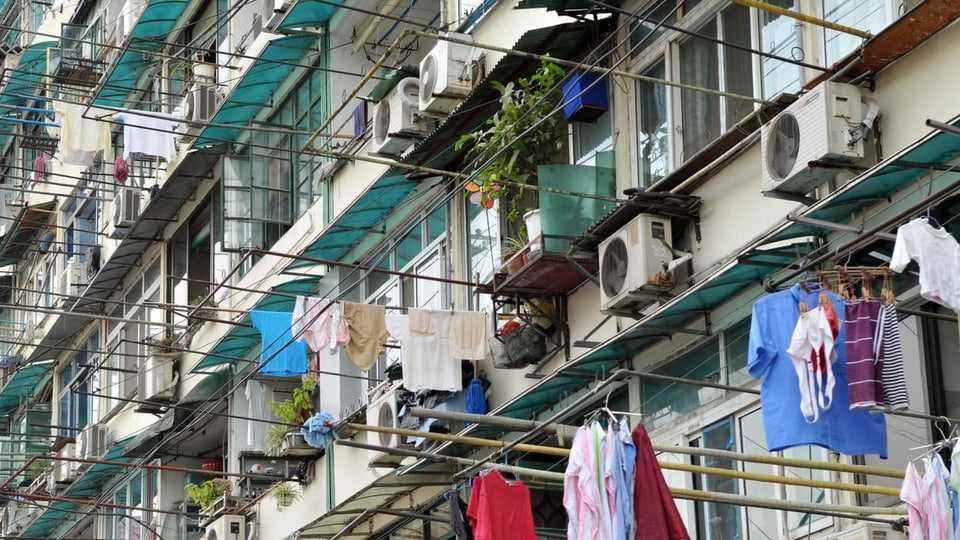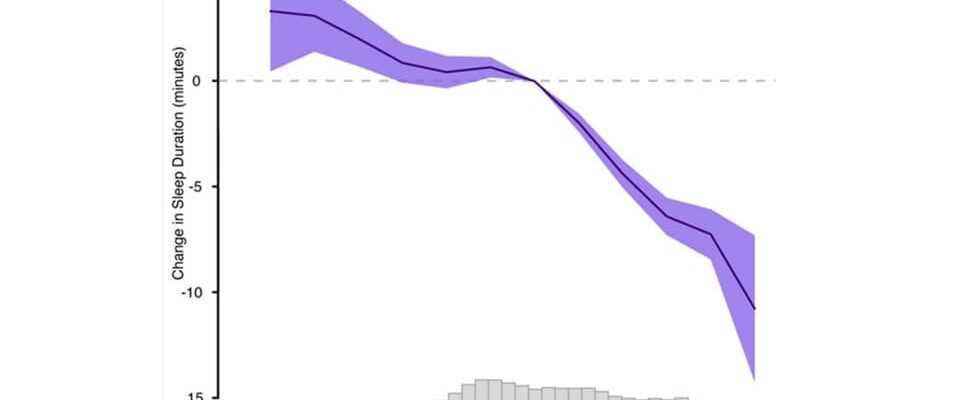contents
High temperatures reduce our sleep – women and older people are particularly affected.
The last few nights have been a challenge for many. Tropical temperatures meant that we went to bed late, could not fall asleep so well, woke up more often than usual – restful sleep, many will have thought, looks different. But it is important for our health.
Due to global warming, night-time temperatures are rising. one in May published study shows the influence warmer nights have on our sleep worldwide. According to this, people around the world already lose an average of 44 hours of sleep per year due to high night-time temperatures, with the value varying greatly between countries.
“We expect this to increase to 50 to 58 hours a year by the end of the century if we don’t cut emissions,” says Kelton Minor, a data analyst at the University of Copenhagen and lead author of the study.
The hotter the worse
Using data from 47,000 sleep-tracking bracelets, Kelton Minor’s team was able to show that very warm nights above 30 degrees Celsius led to around 14 minutes less sleep compared to nights with the lowest temperatures.
Legend:
The graph shows that sleep duration decreases as temperatures rise, with the linear decline being even steeper at temperatures above 10 °C.
One Earth / K. Minor
“The probability of sleeping less than seven hours increases sharply from 10 degrees Celsius, we see the greatest influence on nights that exceed 25 degrees Celsius,” says Minor – with seven hours of sleep being the recommended average for restful sleep.
The study relates to the measured outside temperature, which has a major impact on our sleep because our body temperature adapts to it.
“Our body has to give off heat so that the body temperature drops enough to be able to fall asleep,” says Christine Blume, a sleep researcher at the University of Basel. In addition, our core temperature drops in the evening hours. When it decreases the most, we get tired.
“The delay in falling asleep measured in the study could have something to do with the lack of heat emission,” says Blume.
Hot nights can have the same effect as sleep deprivation.
The consequences of the sleep deficit could be enormous. “Studies have long shown that more people die on hot days, while heat waves increase suicide rates, more people are injured and more are hospitalized,” says Kelton Minor. For a long time we didn’t know why. “But it’s becoming increasingly clear that hot nights can have the same effects as sleep deprivation.”
Women are more affected
The loss of sleep does not affect everyone equally. For every degree of increase in night-time temperature, women are around 25 percent more affected than men – people over 65 even twice as badly.
Exactly why this is so is only assumed. “The sleep of women and older people is generally more sensitive and more likely to be impaired,” says Christine Blume. The authors of the study suspect that the higher subcutaneous fat layer in women could also contribute to the fact that physical heat loss is weaker at night.
Global Injustice
However, people in poorer countries and in areas around the equator and in desert regions, who are already suffering from global warming, are particularly affected. Their sleep loss is around three times greater than that of people in – often cooler – countries with a high gross national product. The study results also show that we are not able to compensate for the lack of sleep in any other way.

Legend:
In some countries, rising temperatures can only be met with air conditioning, but not all can afford it. What cools some produces additional heat for others through the waste heat from the air conditioning system.
Imago Images / Joker
“When we think of environmental factors affecting sleep, we think of noise or light,” says Kelton Minor, “but heat also plays a huge role.” But light and noise affect only a few. Heat, however, an entire society.
